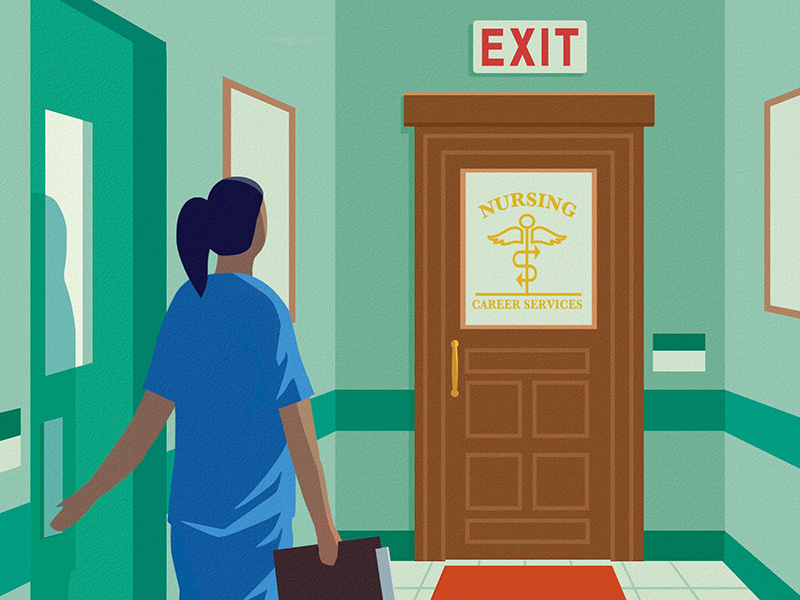Biden-Harris Administration’s FY 2022 Discretionary Funding Request Includes Proposals to Advance Public Health

In its first year, new presidential administrations release a skinny budget that contains more topline items rather than deep dives into each agency and subdivision. Following suit, in April 2021 the Biden-Harris administration released its request for discretionary funding with limited definition, but it was enough to foreshadow the fiscal year (FY) 2022 funding cycle.
- Read more about Biden-Harris Administration’s FY 2022 Discretionary Funding Request Includes Proposals to Advance Public Health
- Add new comment
Nurses, Researchers Create Innovative Solutions to Ambulatory Care Challenges in ONS Hackathon

Efficiently running an ambulatory infusion clinic is a complex process that requires evolving strategies to equip staff to provide high-quality cancer care. During the June 2021 ONS HackathonTM, oncology nurse innovators created solutions to address ineffective nursing resources in infusion centers across the United States.
- Read more about Nurses, Researchers Create Innovative Solutions to Ambulatory Care Challenges in ONS Hackathon
- Add new comment
AHRQ Envisions Plan to Address Historical Racism and Inequality in Health Care

Historical and structural racism is a huge barrier to quality health care that has created two tiers of access to care and a lack of understanding of the healthcare system. Government health agencies and leaders, such as the U.S. Agency for Healthcare Research and Quality (AHRQ), are tackling racial disparities in health care directly to change the dynamic to equality for all Americans. AHRQ says it is assessing its own agency and examining how professionals can make the health services research field more diverse and inclusive by building on a foundation that includes producing and promoting the annual National Healthcare Quality and Disparities Report and AHRQ’s social determinants of health database. By recognizing disparities related to race and ethnicity, income, and other social determinants, the organization plans to further address historical racism in health care.
- Read more about AHRQ Envisions Plan to Address Historical Racism and Inequality in Health Care
- Add new comment
PCORI Adjusts National Priorities to Align With Addressing Disparities and Improving Healthcare Systems

Achieving health equity tops the list of the Patient-Centered Outcomes Research Institute’s (PCORI’s) newly updated National Priorities for Research, which the institute released on June 24, 2021.
- Read more about PCORI Adjusts National Priorities to Align With Addressing Disparities and Improving Healthcare Systems
- Add new comment
Nursing Considerations for Lung Cancer Survivorship Care

As Americans reduce tobacco use and treatment and diagnosis advance, lung cancer survivorship rates are improving; however, it still remains the second most common type of cancer. The growing population needs appropriate survivorship care.
U.S. Surgeon General Issues Report on Dangers of Health Misinformation During the COVID-19 Pandemic

In today’s digital age of news, the public often struggles to decipher real science from misleading or incorrect information—and the COVID-19 coronavirus pandemic has only magnified the situation. Seeing a detrimental impact to the health of the nation, U.S. Surgeon General Dr. Vivek Murthy, MD, MBA, issued his first advisory report of the Biden administration on the topic of misinformation in public health.
- Read more about U.S. Surgeon General Issues Report on Dangers of Health Misinformation During the COVID-19 Pandemic
- Add new comment
Heart Failure May Increase Risk for Certain Cancers

Patients with heart failure have a 75% increased risk of developing cancer, researchers reported in ESC Heart Failure. And cancer incidence rates were even higher for specific disease sites.
NCI Recognizes Three ONS Members as Champions and Changemakers

Where there’s cancer, there are oncology nurses. It’s been that way even before 1971, when President Richard Nixon established and signed into law the National Cancer Act to fight the “war on cancer,” which had just become the second leading cause of death in the United States. Born from the act, the National Cancer Institute (NCI) celebrates its 50th anniversary in 2021. As part of the celebration, it named three oncology nurses and ONS members on its champions and changemakers list—Betty Ferrell, PhD, FAAN, FPCN, CHPN, Deborah Watkins Bruner, RN, PhD, FAAN, and Christine Miaskowski, RN, PhD, FAAN—in recognition of their contributions to cancer prevention, early detection, and symptom science.
Nursing Informaticists Are the Backbone of Technology-Driven Care

Emerging healthcare technologies require a significant investment in time, money, and training. It starts with ensuring that quality improvement efforts are consistent to support positive clinical and patient outcomes, which is why clinical and information technology (IT) representation is critical in making decisions and exploring solutions. Nursing informatics bridges that gap.
Beyond the Bedside: Oncology Nurses Have Endless Opportunities in Unexpected Careers

As a nurse, you have a diverse arsenal of skills, from clinical competencies and leadership to problem-solving and interprofessional communication. That skillset easily transfers to a variety of careers outside of direct care.





